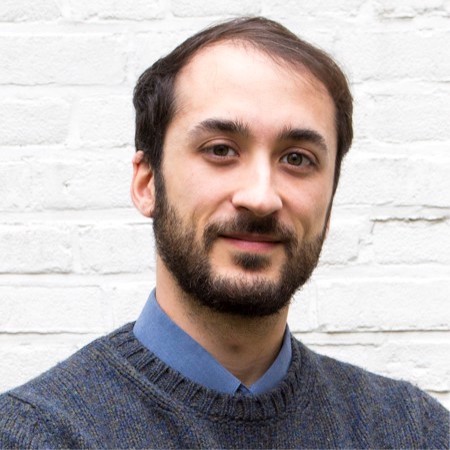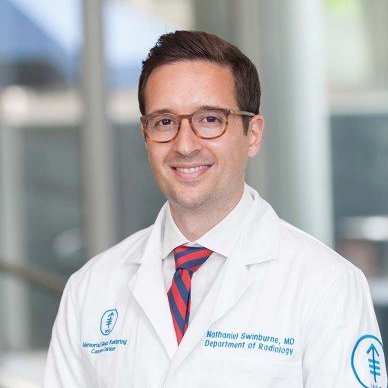Chalmers AI Research Centre and Sahlgrenska University Hospital are organizing a workshop on the theme “The Learning Hospital”. The workshop is aimed at researchers and clinicians who are interested in how analysts and healthcare providers can best work together to improve machine learning (ML) and artificial intelligence for decision-making in health. The event will host international and local speakers with experience in applying and/or deploying machine learning in healthcare and will feature interactive workshop sessions with the goal to find out how Chalmers and Sahlgrenska can grow together in this field. We ask questions like: How should ML systems be built, deployed, and evaluated to guarantee continuous high-quality care? How should clinical data be collected, stored, and used to support causal inferences about the effects of clinical policy? How should ML change to work effectively in a hospital setting?
Thank you for participating in the workshop!
Slides and recordings of the talks can be found below.
Morning sessions (9am - lunch)
| 09:00-09:10 | Introduction by workshop organizers |
| 09:10-09:30 |  Ann-Marie Wennberg Larkö Ann-Marie Wennberg Larkö Sahlgrenska University Hospital, Gothenburg University Ann-Marie Wennberg Larkö is professor of dermatology och venereology at the Sahlgrenska Academy and director of Sahlgrenska University Hospital. Title: Maximizing the potential of AI for patient benefit Abstract: I will describe the role of AI in healthcare from the perspective of Sahlgrenska University Hospital. |
| 09:30-09:50 | Coffee break |
| 09:50-10:50 |  Uri Shalit Uri Shalit Technion - Israel Institute of Technology Uri Shalit is assistant professor in the Faculty of Data and Decision Sciences at the Technion. Uri directs the Machine Learning & Causal Inference in Healthcare Lab who work on developing new methods for using data in decision making with machine learning and causal inference. Title: When and how can machine learning be used for treatment recommendation based on patient records? Abstract: In this talk, we introduce a framework for generating personalized treatment recommendations for patients using their health data. We will highlight the challenges inherent in this task, particularly the impossibility of evaluating model performance for counterfactual treatment recommendations - we can never know how the patient would have reacted to a treatment they did not receive. We show how we address these challenges within the framework of causal inference, and discuss ways in which we can gain confidence in our treatment recommendation model even when test set performance cannot be evaluated. We will describe a case study demonstrating the use of our framework for optimizing volume treatment for heart failure patients in a hospital setting, and conclude with an outline of a trial we are currently planning with our clinical collaborators. [Slides] [Video] |
| 10:50-11:50 |  Giovanni Cinà Giovanni Cinà Pacmed and University of Amsterdam Giovanni Cina is assistant professor in Responsible Medical AI at the Medical Informatics department and at the Institute for Logic, Language and Computation, at the University of Amsterdam. Giovanni is also Research Lead at Pacmed, a company aiming to deliver higher quality of care and better use of hospital capacity through data-driven decision support. Title: Developing and deploying AI in the ICU, methodological challenges Abstract: The medical field has lagged behind in terms of applications of AI products, for a variety of reasons, but in the last few years some products have found their way to the bedside. Product development is, however, still in a pioneering phase: there is no set standard for medical AI products and product developers have to grapple with various open research questions. Drawing from the experience of the implementation of an AI tool in the ICU, this talk will discuss a few methodological challenges, including explainable AI (providing explanations that align with clinicians’ concepts, fixing confirmation bias in feature attribution methods), out-of-distribution detection (monitoring model reliability in real time), providing models with expert knowledge (training with logical constraints), as well as causal inference (building actionable models for ICU treatment-stopping problems). We will present past or ongoing work in these topics, and suggest directions for future work. [Slides] [Video] |
| 11:50-13:00 | Lunch break |
Afternoon sessions (lunch - 4pm)
| 13:00-14:00 | Workshop session: Identifying and meeting the challenges of AI in healthcare |
| 14:00-15:00 |  Narges Razavian (remote) Narges Razavian (remote) New York University Narges Razavian is assistant professor in the Predictive Analytics Unit at the Center for Healthcare Innovation and Delivery Sciences of New York University Langone Medical Center. Narges directs the Razavian lab who focus on the intersection of machine learning, artificial intelligence, and medicine. Title: Designing, Implementing and Evaluating AI in Medicine for Real-World Clinical Impact Abstract: The field of AI in Medicine has produced outstanding academic research. Translating these success stories into measurable clinical improvement in patient care has not been as successful, in part due to many additional foundations that are necessary for model implementation and evaluation in real-world settings. In this talk, we will review major frameworks that facilitate model implementation and evaluation, and get a deep dive into two use-cases that address the full spectrum of AI, from design and retrospective validation, to real-time implementation and RCT based evaluation. The first use-case will be around a validated and deployed model for COVID outcome prediction for inpatient setting at NYU Langone. The second use-case will be around deploying an imaging model based on MRI for the task of dementia early identification. [Slides] [Video] |
| 15:00-15:15 | Coffee break |
| 15:15-16:15 |  Nathaniel Swinburne (remote) Nathaniel Swinburne (remote) Memorial Sloan Kettering Cancer Center Nathaniel Swinburne is a neuroradiologist at Memorial Sloan Kettering specialized in diagnostic imaging of the brain, head and neck, and spine. Nathaniel’s research studies imaging informatics—the application of information science and artificial intelligence to radiologic imaging—with the goal to improve how we detect diseases, assess and classify tumors non-invasively, and evaluate disease response to treatment Title: Powered by PACS: How Data Mining Facilitates Radiology AI Development and Clinical Integration Abstract:The successful clinical integration of radiology artificial intelligence (AI) models often requires internal training data to contend with generalizability limitations that hinder external models. However, the reliance on expert image annotation remains an obstacle, particularly for detection and segmentation models, which require labor-intensive voxel-level annotation. The use of data mined clinical image annotations in conjunction with semi-supervised learning techniques may provide an opportunity to facilitate the development and deployment of such models and establish continuous learning pipelines to manage target data drift. Experiments in PACS data mining, object detection, and segmentation (MODS) using brain MR images are presented, followed by a discussion of challenges to model deployment within the larger context of clinical radiology informatics systems. |
| 16:15 | Closing remarks |
Time & place
Time: March 8, 2023, 9:00am – 4:15pm CET
Location: Chalmersska Huset, Södra Hamngatan 11, Göteborg
Organizers
- Fredrik Johansson (Chalmers)
- Magnus Kjellberg (Sahlgrenska University Hospital)
- Cecilia Hahn berg (Sahlgrenska University Hospital)